
Details that have emerged of the operation and philosophy of the Asian Infrastructure Investment Bank (AIIB) show that it is meeting expectations to lead development cooperation as a new type of multilateral financial institution.
Addressing the AIIB board of governors on Saturday, the bank's President Jin Liqun said that the bank is "now off to a strong start" and has begun to deliver on its commitments to shareholders and the world on organizational performance and corporate governance.
It unveiled the first four projects on Friday with approved financing totaling 509 million U.S. dollars. The funded projects are a power distribution system upgrade and expansion project in Bangladesh, a national slum upgrading project in Indonesia, a motorway project in Pakistan and a border road improvement project in Tajikistan.
The bank has set a target of lending about 1.2 billion U.S. dollars in 2016.
"A sound corporate culture is taking shape," Jin said before briefing the board of governors on the details of the bank's first several months of operation.
The AIIB was officially opened in January this year, six months after its founding members signed its articles of agreement in Beijing. The bank was designed specifically to "tackle the challenges and meet the current and emerging needs of its broad shareholder and stakeholder base."
It aspires to "exercise exemplary organizational performance and corporate governance, and to deliver timely, cost-effective and sustainable infrastructure financing and services to our clients -- always mindful of the need to protect the natural and human environment," Jin said.
As a newcomer to the family of the world's multilateral development banks, the AIIB has been viewed with suspicion by countries including the United States, who worry that the bank might be aimed to undermine the existing international economic governance system. However, the bank led by China managed to win not only regional developing economies but also developed economies, including European countries.
The AIIB says that the gap for infrastructure financing in Asia has been huge and that the market is big enough for multiple players to coexist.
Observers say the AIIB marks a departure from traditional multilateral development banks as it bears the birthmark of seeking win-win development cooperation, largely thanks to the fact that it is led by developing economies and open to both developing and developed economies.
Three of the bank's first four projects were co-financed with other multilateral development banks such as the World Bank, the Asian Development Bank and the European Bank for Reconstruction and Development, the bank said.
"The bank is moving in the right direction with its cooperation agreements with multilateral development banks," Singapore's Senior Minister of State for Law and Finance Indranee Rajah said at the meeting of board of governors on Saturday. "Going forward, the AIIB could also consider forming similar partnerships with the private lenders to encourage more private sector financing for a critical mass of infrastructure projects in Asia," she added.
The bank is moving in exactly this direction. Jin said that the bank will try to be a pacesetter for public-private partnerships and that it will try to mobilize resources from the private sector to ease the infrastructure financing pressure on governments.
As a multilateral development bank, the AIIB offers a new platform for enriched cooperation and enhanced regional connectivity and integration, partnering with many other initiatives including the Group of 20 global infrastructure connectivity alliance initiative.
The bank aspires to be "lean, clean and green." Jin said on Saturday that the bank takes a measured approach to staffing. With the senior leadership team almost complete and mid-level management staffing under way, it now has a total staff of 39, with another 20 expected to join next month or so. They are supplemented by consultants. The total staff is anticipated to be around 100 by the end of the year.
Observers also hailed its efficiency.
Oh Ei Sun, a senior fellow at the S. Rajaratnam School of International Studies, Nanyang Technological University, said that he expects this to be one of the key strengths of the new bank. "As far as I know, the AIIB is going to be more efficient. Existing multilateral financial institutions typically require the borrowers to go through lengthy procedures and fulfill many conditions aside from the business considerations," Oh said.
Oh also said the AIIB, as an investment bank, has another advantage in its results-focused business model and market-based operation, though it is not profit-driven. It is most likely to be sustainable.
Jin said the bank will substantiate and refine its strategy and deliver strong operation results. "The bank looks to take its place as one of the leading multilateral financial institutions for cutting-edge infrastructure investments and as a pacesetter for public-private partnerships," he said. "We will place a premium on supporting infrastructure projects with significant cross-border benefits. We will prioritize sound 'green' infrastructure investments, promoting energy efficiency, renewables, clean transport and other projects that help reduce global warming," he added.
















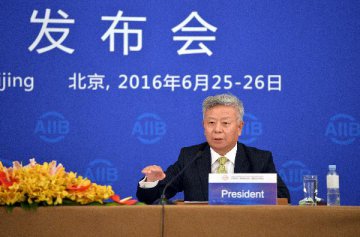
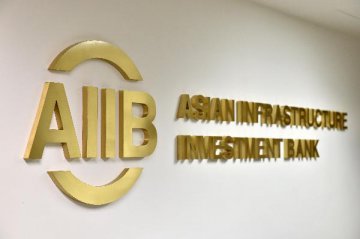
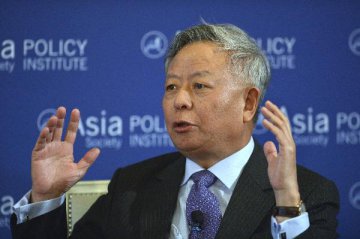
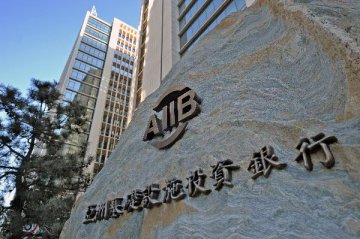
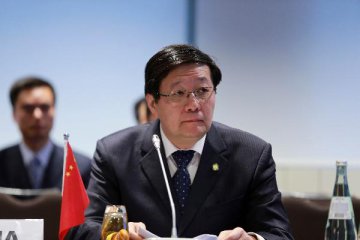
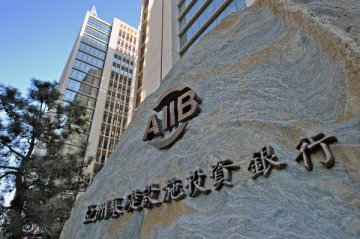


Latest comments